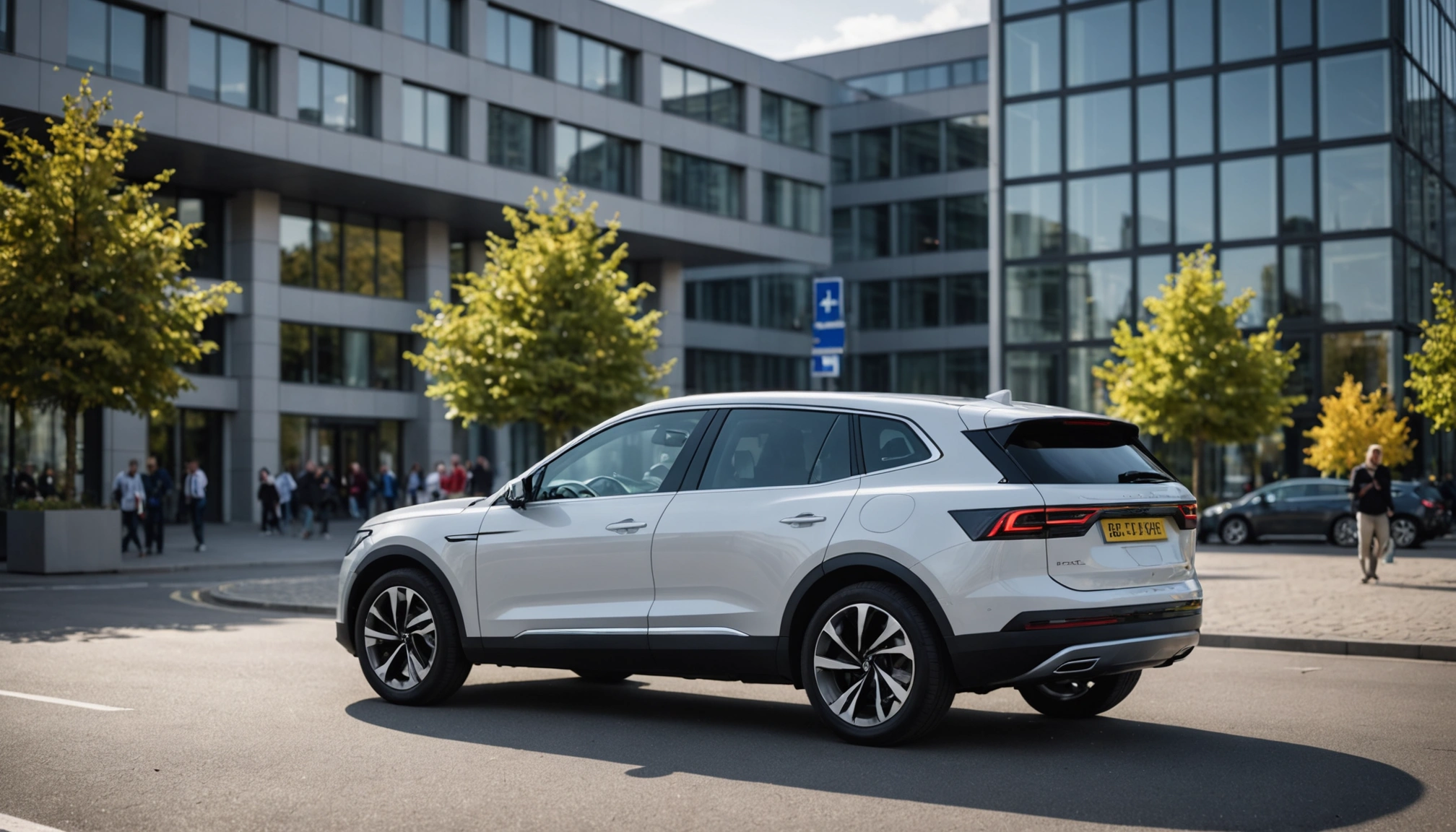Europe's Electric Vehicle Market Rebounds Amidst Lingering Consumer Hesitations

Europe's electric vehicle (EV) market is experiencing a resurgence in 2025, offering a glimmer of hope to the automotive industry after a challenging period. While sales figures demonstrate a clear upward trend, persistent consumer doubts regarding charging infrastructure, vehicle costs, and battery performance threaten to impede the long-term adoption of EVs across the continent.
Sales Surge Signals Recovery
Data from the European Automobile Manufacturers' Association indicates a significant rebound in EV registrations. From January to April 2025, over 2.2 million electrified vehicles, including battery-electric vehicles (BEVs), hybrid-electric vehicles (HEVs), and plug-in hybrid electric vehicles (PHEVs), were registered across the European Union, Switzerland, Norway, and Iceland. This represents a 20% increase compared to the same period in 2024. BEV registrations alone saw a substantial 26% surge, highlighting the growing momentum toward zero-emission driving. The United Kingdom mirrored this trend, with BEV, HEV, and PHEV registrations climbing 22.8% to 486,561 units during the same timeframe, with pure electric models leading the charge with sales up by over a third.
This positive momentum provides much-needed relief to Europe's automotive sector, which has been grappling with rising production costs, intense competition from Chinese EV manufacturers, and stringent EU carbon emission regulations. However, the industry faces new hurdles, including potential tariffs on car exports to the United States.
Uneven Adoption and Consumer Skepticism
Despite the overall positive sales figures, the transition to EVs remains uneven across Europe. While countries like Norway and Denmark lead the way in EV adoption, registrations in Bulgaria, Croatia, Poland, and Slovakia remain significantly lower. However, even in these countries with lower adoption rates, new BEV registrations have increased substantially, indicating a positive trend across all European markets.
Consumer skepticism remains a significant barrier to widespread EV adoption. Surveys indicate that many European car buyers still favor hybrid vehicles over BEVs due to concerns about charging infrastructure and the higher upfront costs of electric vehicles. A recent survey revealed that only 16% of European car buyers preferred BEVs, while 49% supported hybrids.
Infrastructure Challenges Persist
The availability of charging infrastructure remains a critical concern for potential EV buyers. While Europe surpassed 1 million public charging points in 2025, projections indicate a need for 8.8 million charging points by 2030 to support the anticipated growth in EV adoption. This translates to a requirement of nearly 5,000 new installations weekly to meet the growing demand. The infrastructure gap contributes to consumer anxiety about the practicality of owning an EV, particularly regarding long-distance travel and accessibility in rural areas.
Policy Shifts and Market Dynamics
Government policies and incentives play a crucial role in shaping the EV market. Germany's decision to abruptly end EV subsidies in 2023 due to budget constraints led to a significant drop in BEV registrations. The removal of incentives, ranging from €3,375 to €9,000 based on vehicle cost, deterred price-sensitive consumers, resulting in a 27.4% decline in BEV registrations. France also experienced a broader auto market downturn due to economic uncertainty and stricter EV subsidy eligibility rules.
Conversely, the EU's mandate requiring a 15% reduction in fleet-wide CO2 emissions from 2021 levels has incentivized manufacturers to prioritize electric models, contributing to the overall increase in EV sales. The contrast in regional EV adoption rates, with China experiencing rapid growth while North America lags behind, highlights the significant impact of government policies on market development.
Tesla's Market Share Declines Amidst Controversy
While the EV market is expanding, some manufacturers are facing challenges. Tesla's European sales have declined significantly, with its market share eroding despite a refreshed lineup. This decline has been attributed to CEO Elon Musk's controversial political views and association with former U.S. President Donald Trump, potentially impacting the brand's popularity among European consumers. Meanwhile, Chinese manufacturer BYD has surpassed Tesla in EV sales in Europe for the first time, demonstrating the growing competitiveness of Chinese EV brands in the European market.
Conclusion
Europe's EV market is showing signs of recovery, driven by increasing consumer awareness, government regulations, and manufacturer investments. However, persistent consumer doubts regarding charging infrastructure, vehicle costs, and battery performance remain significant challenges. Addressing these concerns through continued investment in charging infrastructure, offering more affordable EV models, and ensuring clear and consistent government policies will be crucial for sustaining the growth of the EV market and achieving long-term sustainability goals. The automotive industry must also navigate increasing competition from Chinese manufacturers and adapt to evolving consumer preferences to succeed in the rapidly changing European EV landscape.
Related Articles

EU Faces Uphill Battle Securing US Trade Pact Amid Trump's Tariff Threats

Myanmar's Rare Earths Boom: A Dirty Secret Fueling Green Tech
